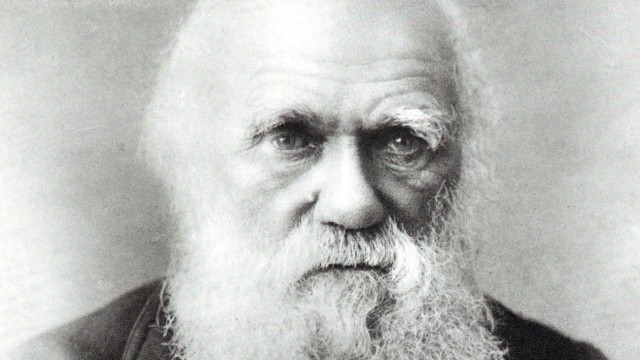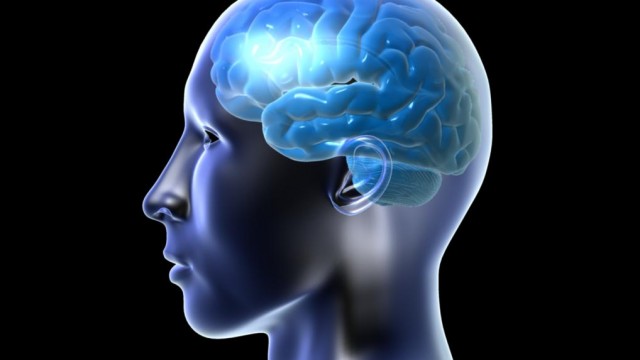Long before the Genesis story, people put ‘man’ at the center of the universe. That’s true even now, after astronomers have discovered an incomprehensibly vast and diverse universe. Humans are obviously self-centered by nature. So is ‘human nature’ fixed?
 Galileo spent the last years of his life under house arrest because he found evidence that Copernicus was right, the earth revolves around the sun. So are we just specks on a speck in space, which is the philosophy science has been pushing? To my mind, that’s just as wrong as anthropocentrism.
Galileo spent the last years of his life under house arrest because he found evidence that Copernicus was right, the earth revolves around the sun. So are we just specks on a speck in space, which is the philosophy science has been pushing? To my mind, that’s just as wrong as anthropocentrism.
Stephen Hawking has been trying to combine large and small-scale theories of the universe (relativity and quantum mechanics) into a single ‘theory of everything.’ His insights into black holes give the first evidence for the overlap of the very large and the very small–formerly completely separate and even hostile camps in physics. But that problem pales in comparison to understanding the seemingly antithetical essence of nature and man.
As author Jared Diamond has said, “it is much more difficult to understand human history than to understand problems in fields of science.” Stating an obvious but rarely applied principle, he adds, “but introspection gives us far more insight into the ways of other humans than into those of dinosaurs.”
His own wording however, reveals the basic tendency of the human mind toward separation: “the ways of other humans.” We are alone, in this world and in this corner of the galaxy, but we’re not separate from anyone or anything.
Should we take the “Signpost” offered by poet Robinson Jeffers? “Civilized, crying how to be human again: this will tell you how. Turn outward, love things, not men, turn right away from humanity.” I feel not. In loving humanity, one risks being repeatedly disappointed, but in turning away from humankind one certainly becomes inwardly dead.
The question I asked myself as a young man, and which became almost an obsession for 15 years until there was some new insight, is this: Given that nature operates seamlessly in limitless dimensions of order, and that humans evolved in nature, how is it that humankind emerged as a separative creature, producing more and more fragmentation and disorder?
Regarding ‘chaos’ in nature, Alan Garfinkel, a professor of medicine and physiological science, puts it pithily when he says, “chaos in nature is not disorder; it is a higher form of order.”
It should go without saying, but unfortunately needs to be reiterated, that humans evolved along the same lines and according to the same principles as all other life. Charles Darwin, in the “Decent of Man,” was able “to show that species had not been separately created.”
The fact that a separate creation of man is still believed by a majority of Americans is a sad commentary on our educational system. As paleontologist Stephen Jay Gould wrote, “the fact of evolution is as well established as anything in science, as secure as the revolution of the earth about the sun.”
Gould remained a steadfast believer in the ultimate randomness and purposelessness of evolution, whereas Darwin retained his faith in a higher intelligence than the mind of man, though not a ‘Creator.’ As Einstein said (speaking metaphorically), “God does not play dice.” Gould mistakenly had no doubt about the nature of the universe, though he was concerned about the growing chasm between humans and nature.
The very existence of such a powerful and increasingly destructive creature as man raises questions that go to the heart of both science and religion. Why does humankind, despite the overwhelming evidence to the contrary from science, continue to operate separatively from nature? What makes us feel as though we are separate in the first place? In other words, what is the ultimate cause of human alienation?
 Calling Homo sapiens ‘intelligent life’ is not just premature—it is a misnomer. Is it that wherever the evolution of the development of conscious, symbolic thought occurs in the universe, it contains a strong tendency to project the capability for separation onto nature, blinding us to the actuality of wholeness?
Calling Homo sapiens ‘intelligent life’ is not just premature—it is a misnomer. Is it that wherever the evolution of the development of conscious, symbolic thought occurs in the universe, it contains a strong tendency to project the capability for separation onto nature, blinding us to the actuality of wholeness?
Be that as it may, the meta-mistake of extending useful separation into the psychological realm produces increasing division and fragmentation until there is sufficient insight into thought to keep it in its place. Or until we destroy ourselves.
The evolution of the human brain gave us tremendous capacity, not only for knowledge, science and technology, but also for awareness, philosophy and insight. But the propensity to separate things from the environment is so strong that we take the separateness of ‘things’ in nature and the universe as a given. That’s the first mistake, the ‘original sin.’
The universe unfolds in seamless wholeness, and yet on earth it has evolved a creature that operates in terms of taking things apart and recombining them for its own purposes. There is a tremendous mystery in the contradiction, and greatness in its resolution.
Resolving the riddle within oneself, and ending self-centeredness in all its forms, the awakening human being finds newfound harmony with nature, and hears the ‘music of the spheres.’
Martin LeFevre

